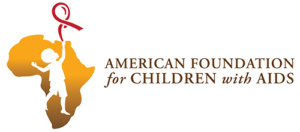June 29, 2012 – Mahwanke, Zimbabwe

While Juju convinces Aiden that she can carry him like African women carry their babies, I prepare for a day in the field:
Water bottle.
Snack.
Sunglasses.
Paper and pen.
Camera.
Toilet paper
I am on the road again.
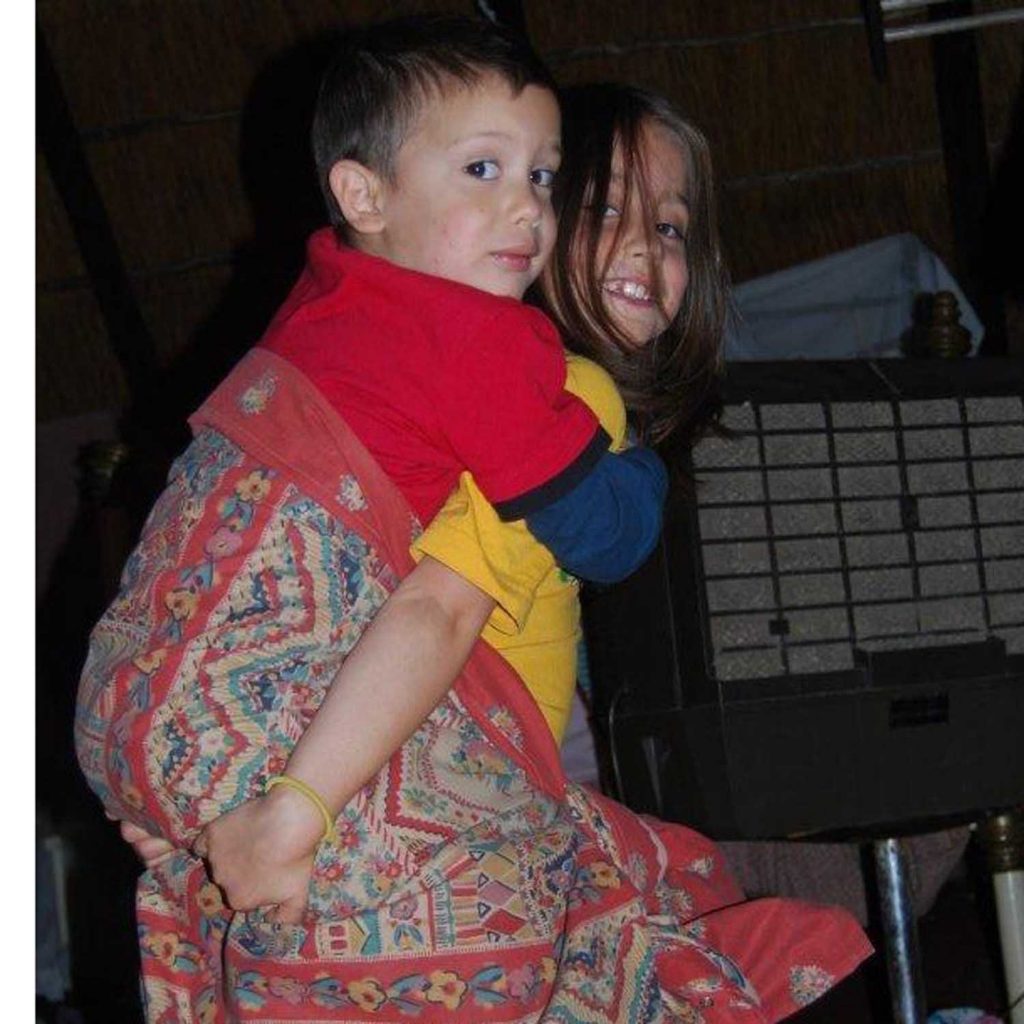
This time, I am on my way to Mahwanke with Shungu (monitoring and evaluation guy) and Q to distribute 32 goats to some elderly Go-gos (grandmothers) in the middle of nowhere. We talk easily as now-familiar scenery flashes by the side windows of the car. I don’t lift up my camera when a troop of baboons cross my path or when impala jump in front of the car startling the three of us. Now, if a rhino or a giraffe were to make their presence known, I’ll be all over that!
 As we drive, we talk easily about ideas, about development, about hunger, about food security, about goats, rabbits, and chickes. Shungu tells me that what AFCA does here is life-changing. He is passionate as he tells me of the goat babies born in programs we’ve supported in the past and how the children are getting plumper due to good milk. He is so excited to monitor the activity of various sites because he sees real change. Of all people, he should know. He has worked all around the country and can easily tell you where villages are located, where the driest areas are, where the biggest hunger lurks. He will also tell you with a broad smile about the places where hope lives and where grandmas dance at the birth of a new baby goat.
As we drive, we talk easily about ideas, about development, about hunger, about food security, about goats, rabbits, and chickes. Shungu tells me that what AFCA does here is life-changing. He is passionate as he tells me of the goat babies born in programs we’ve supported in the past and how the children are getting plumper due to good milk. He is so excited to monitor the activity of various sites because he sees real change. Of all people, he should know. He has worked all around the country and can easily tell you where villages are located, where the driest areas are, where the biggest hunger lurks. He will also tell you with a broad smile about the places where hope lives and where grandmas dance at the birth of a new baby goat.
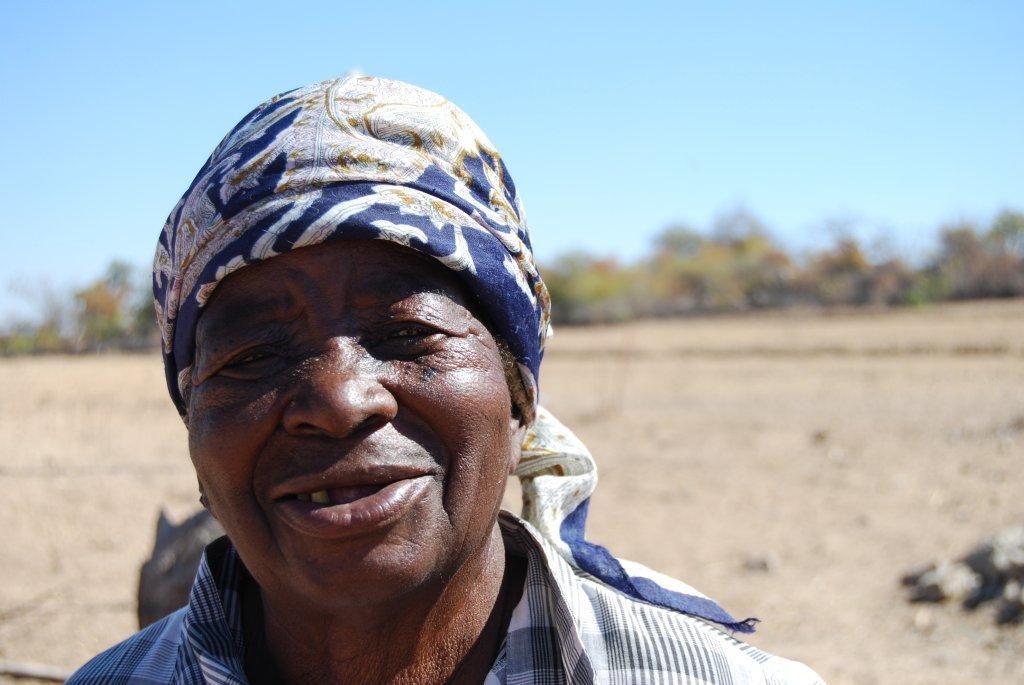
Go-go Judith
After what seems like half the day, we arrive dusty and a bit parched. It is a hovel of round huts, a space where dust and greenish-brown skinny trees meet under an intense blue sky. There, waiting for us, are the grandmas. They shake my hand in the funny three-part African handshake and some hug me. Introductions are made and short speeches are called for. It is obvious, though, that no one came for speeches. They came for GOATS and we are going to give them some!
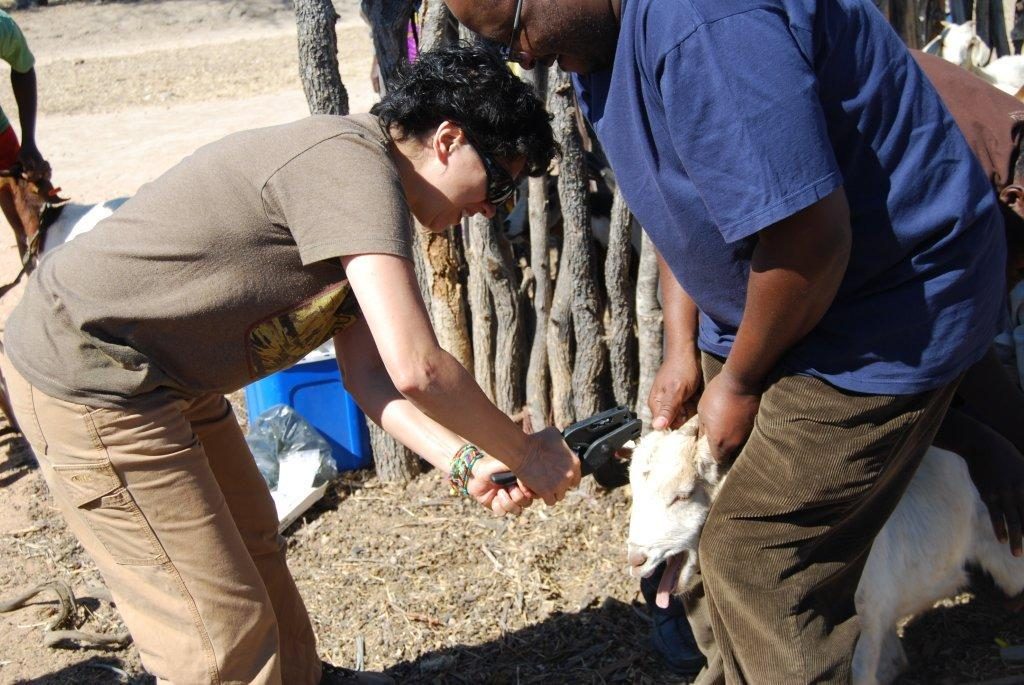 Now accustomed to the routine, I write out ear tags and hand them out to each woman as Q explains the details of what we’ll be doing in the beautiful clicking sounds of N’debele. They clap and smile, eager to get the party going. Beautiful, colorful head coverings stand out against the blue of the sky and the heads bob up and down as they nod in agreement to Q’s words.
Now accustomed to the routine, I write out ear tags and hand them out to each woman as Q explains the details of what we’ll be doing in the beautiful clicking sounds of N’debele. They clap and smile, eager to get the party going. Beautiful, colorful head coverings stand out against the blue of the sky and the heads bob up and down as they nod in agreement to Q’s words.
Q readies the syringe and I get the tagging gun ready. With a quick nod, goat by goat are brought out of the pen, are vaccinated, tagged and handed to the Go-gos.
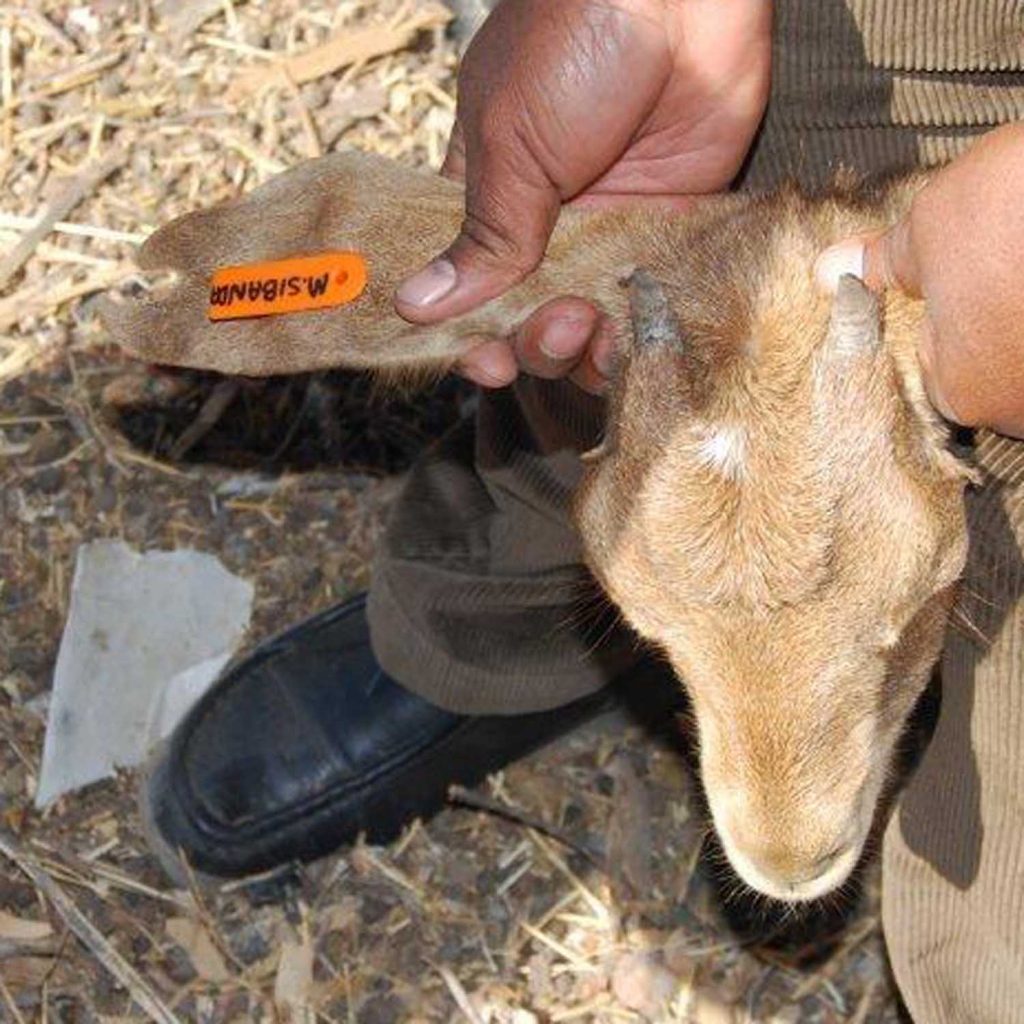 Go-go Judith is about 90 years old and she breaks out in a dance of joy right there, in front of us, missing teeth and all. She is about six inches shorter than me (imagine that!) and dances ferociously. Her feet work up a pattern in the sand and dust. She grabs my hand and says “thank you” with such intensity that the sky cannot compete with her smile. She is radiant.
Go-go Judith is about 90 years old and she breaks out in a dance of joy right there, in front of us, missing teeth and all. She is about six inches shorter than me (imagine that!) and dances ferociously. Her feet work up a pattern in the sand and dust. She grabs my hand and says “thank you” with such intensity that the sky cannot compete with her smile. She is radiant.
She is all any donor would ever need to see to feel that their work is valuable. Please understand that you are a hero to many in a dusty land far from your own.
You are a hero to me.
More importantly, you are a hero to Go-go Judith and the children she is raising as her own.
